Gallery: 65 All-Time Great Galaxy Hits
Hubble Photographs Dozens of Colliding Galaxies
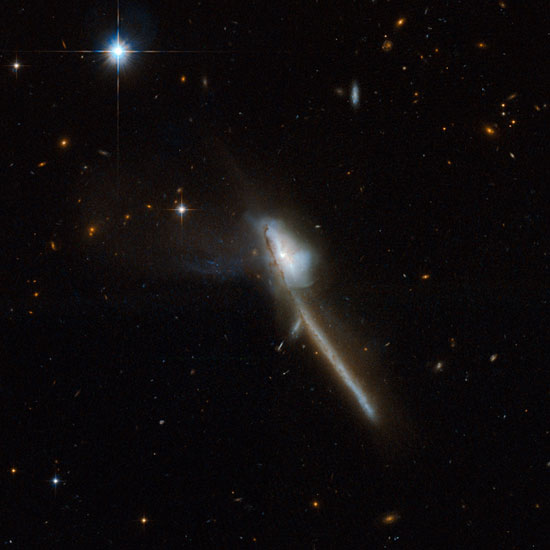
Markarian 273 is a galaxy with a bizarre structure that vaguely resembles a toothbrush. The "handle" of the brush is about 130 thousand light-years long and is strongly indicative of a merger between two galaxies. Markarian 273 has an intense region of starburst, where 60 solar masses of new stars are born each year. The galaxy is located 500 million light-years away from Earth.
New View: Universe Suddenly Twice as Bright
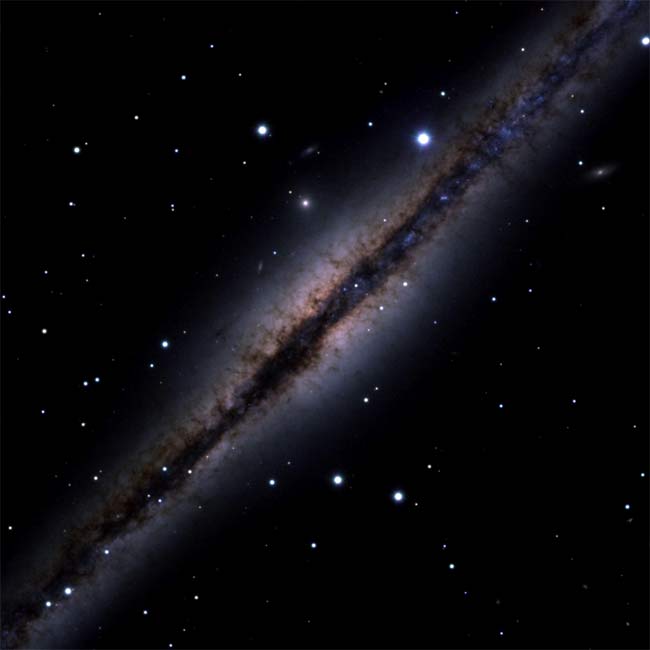
Dust clogs the disks of spiral galaxies, obscuring their light. When galaxies are edge-on, such as NGC 891 shown here, dust is especially prominent.
Black Holes Key to Spiral Arm Hugs
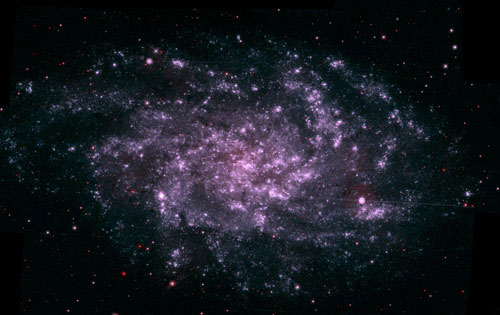
The black hole at the center of the Triangulum Galaxy has a
Milky Way's Halo Loaded with Star Streams
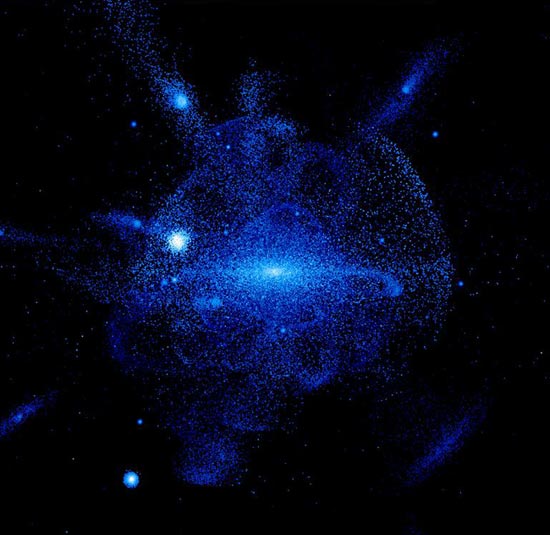
A theoretical model of a galaxy like the Milky Way, showing trails of
Space 'Ropes' Hang Together by Threads
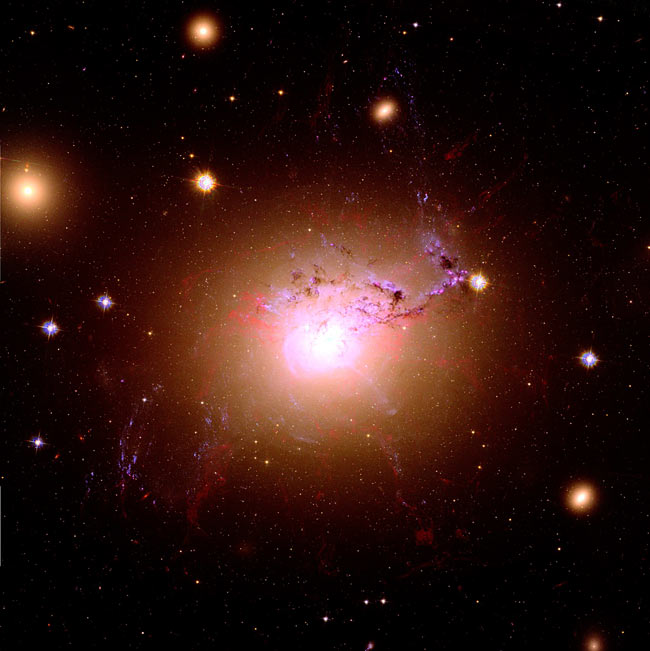
A red, green and blue image of NGC 1275, which was created by combining the data using Hubble's three Advanced Camera for Survey filters. The three images were processed with the method of Lupton et al (2004) to preserve the colour of objects avoiding saturation. The detail in the ilaments was enhanced by using the unsharp mask filter in the GNU Image Manipulation Tool.
Nearby Galaxy Nearly Invisible
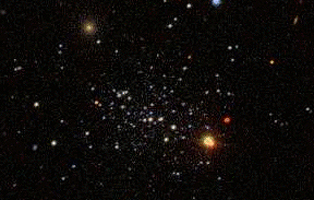
Segue 1 is 50 times dimmer than the star cluster pictured above but is 1000 times more massive, meaning most of its mass must be made up of dark matter.
An Arp to Arp Talk
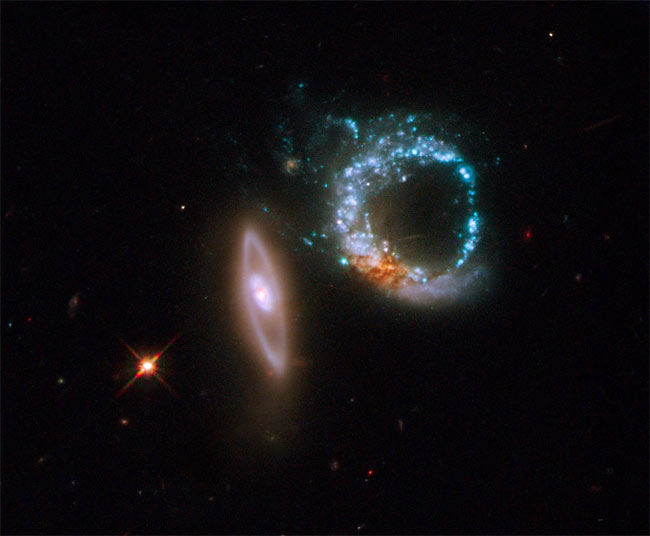
A pair of interacting galaxies called Arp 147 was captured by Hubble's Wide Field Planetary Camera 2. One of the galaxies (left-most galaxy shown) is relatively undisturbed, apart from a smooth ring of starlight. The other galaxy (right-most in image) exhibits a clumpy, blue ring of intense star formation.
Get the Space.com Newsletter
Breaking space news, the latest updates on rocket launches, skywatching events and more!
Mystery of Rapid Star Birth Solved
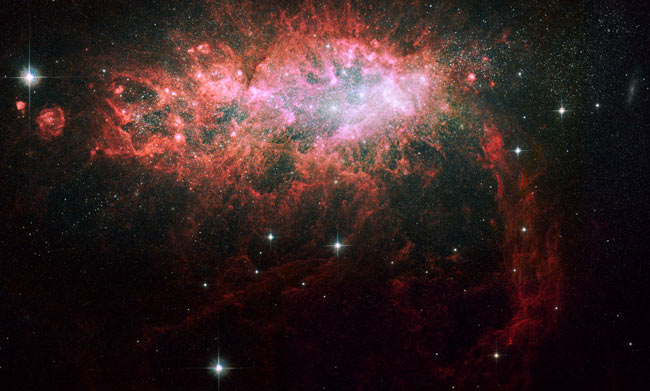
This image taken by NASA's Hubble Space Telescope showcases the brilliant core of NGC 1569, one of the most active galaxies in our local neighborhood. The entire core is 5,000 light-years wide.
Black Holes Burp Big Bubbles
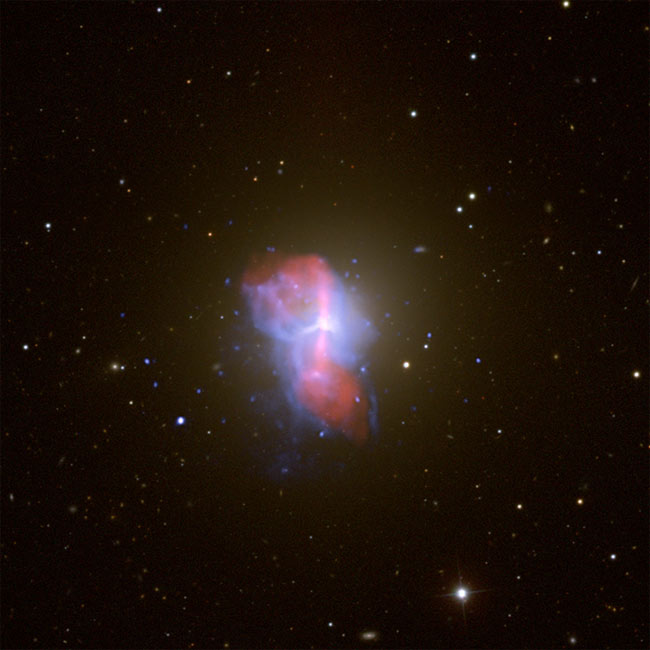
This composite image shows the hot gas around the elliptical galaxy M84 in an X-ray image (blue) and a radio image (red). The bubbles (some visible in the hot gas) were generated by jets coming out of M84's central black hole. The top bubble (blue) is bursting and the hot relativistic gas, shown in red, is spilling out.
Hubble Photographs Cosmic Fountain
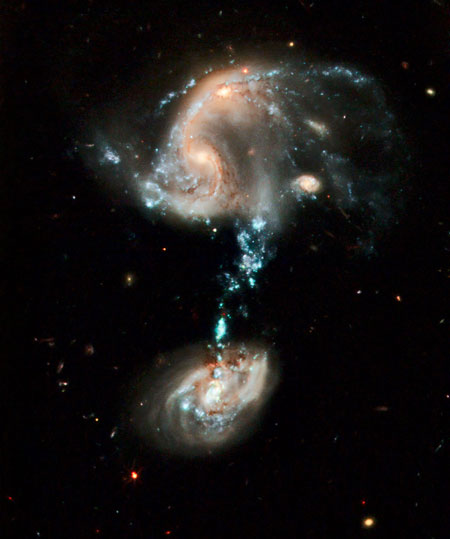
This interacting group contains several galaxies (called Arp 194), along with a "cosmic fountain" of stars, gas and dust that stretches over 100,000 light-years.
Join our Space Forums to keep talking space on the latest missions, night sky and more! And if you have a news tip, correction or comment, let us know at: community@space.com.

Space.com is the premier source of space exploration, innovation and astronomy news, chronicling (and celebrating) humanity's ongoing expansion across the final frontier. Originally founded in 1999, Space.com is, and always has been, the passion of writers and editors who are space fans and also trained journalists. Our current news team consists of Editor-in-Chief Tariq Malik; Editor Hanneke Weitering, Senior Space Writer Mike Wall; Senior Writer Meghan Bartels; Senior Writer Chelsea Gohd, Senior Writer Tereza Pultarova and Staff Writer Alexander Cox, focusing on e-commerce. Senior Producer Steve Spaleta oversees our space videos, with Diana Whitcroft as our Social Media Editor.









